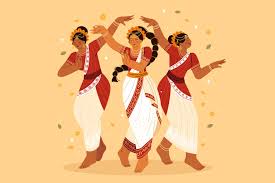Stamp: Selamat Hari Raya Aidil Fitri (Malaysia 2017)
Selamat Hari Raya Aidil Fitri (Malaysia 2017)
28 March (Malaysia ) within release Festive Greeting goes into circulation Stamp Selamat Hari Raya Aidil Fitri face value 80 Malaysian sen
| Stamp Selamat Hari Raya Aidil Fitri in catalogues | |
|---|---|
| Michel: | Mi: MY 2333 |
| WADP Numbering System - WNS: | WAD: MY 027.17 |
Stamp is horizontal format.
The Thuluth calligraphy is used in the Selamat Hari Raya Aidil Fitri greeting. Thuluth means one-third (1/3). Thuluth calligraphy is so named because the width of the lettering is equal to one-third (1/3) of the width of a pen.Also in the issue Festive Greeting :
- Stamp - Festive Greeting - Happy Deepavali face value 0.80;
- Stamp - Festive Greeting - Chinese New Year Greetings face value 0.80;
- Stamp - Festive Greeting - Selamat Hari Raya Aidil Fitri Greeting face value 0.80;
- Stamp - Festive Greeting - Lembaran Mini face value 5.00;
- Mini Sheet - Festive Greeting face value ;
- Souvenir Sheet - Combination of the greetings face value 5;
- Souvenir Sheet - Combination of the greetings face value 5;
- Stamp - Happy Deepavali face value 80;
- Stamp - Selamat Hari Raya Aidil Fitri face value 80;
- Stamp - Chinese New Year face value 80;
Stamp Selamat Hari Raya Aidil Fitri it reflects the thematic directions:
A festival is an event celebrated by a community and centering on some characteristic aspect or aspects of that community and its religion or cultures. It is often marked as a local or national holiday, mela, or eid. A festival constitutes typical cases of glocalization, as well as the high culture-low culture interrelationship. Next to religion and folklore, a significant origin is agricultural. Food is such a vital resource that many festivals are associated with harvest time. Religious commemoration and thanksgiving for good harvests are blended in events that take place in autumn, such as Halloween in the northern hemisphere and Easter in the southern.
Muslims (Arabic: المسلمون, romanized: al-Muslimūn, lit. 'submitters [to God]') are people who adhere to Islam, a monotheistic religion belonging to the Abrahamic tradition. They consider the Quran, the foundational religious text of Islam, to be the verbatim word of the God of Abraham (or Allah) as it was revealed to Muhammad, the main Islamic prophet. Alongside the Quran, Muslims also believe in previous revelations, such as the Tawrat (Torah), the Zabur (Psalms), and the Injeel (Gospel). These earlier revelations are associated with Judaism and Christianity, which are regarded by Muslims as earlier versions of Islam. The majority of Muslims also follow the teachings and practices attributed to Muhammad (sunnah) as recorded in traditional accounts (hadith).
A tradition is a system of beliefs or behaviors (folk custom) passed down within a group of people or society with symbolic meaning or special significance with origins in the past. A component of cultural expressions and folklore, common examples include holidays or impractical but socially meaningful clothes (like lawyers' wigs or military officers' spurs), but the idea has also been applied to social norms and behaviors such as greetings, etc. Traditions can persist and evolve for thousands of years— the word tradition itself derives from the Latin word tradere literally meaning to transmit, to hand over, to give for safekeeping. While it is reportedly assumed that traditions have an ancient history, many traditions have been invented on purpose, whether it be political or cultural, over short periods of time. Various academic disciplines also use the word in a variety of ways.



